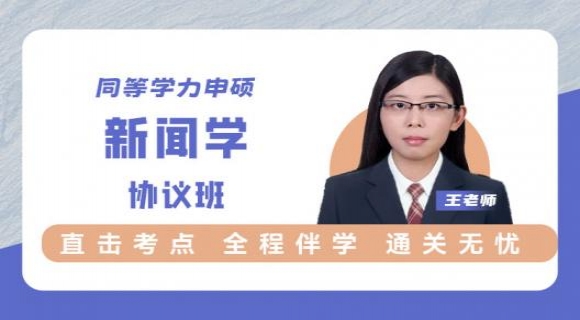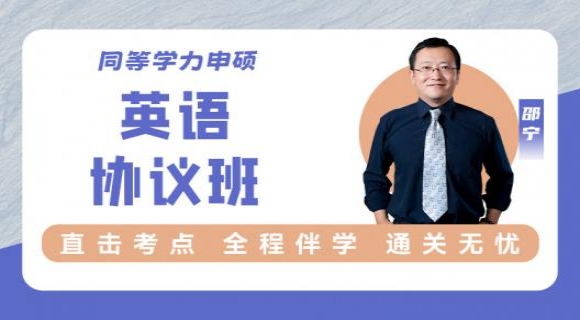
Read the following four texts. Answer the questions below each text by choosing A, B, C or D. Mark your answers on the ANSWER SHEET.
Unlike so-called basic emotions such as sadness, fear, and anger, guilt emerges a little later, in conjunction with a child’s growing grasp of social and moral norms. Children aren’t born knowing how to say “I’m sorry”; rather, they learn over time that such statements appease parents and friends -- and their own consciences. This is why researchers generally regard so-called moral guilt, in the right amount, to be a good thing.
In the popular imagination, of course, guilt still gets a bad rap. It is deeply uncomfortable-- it's the emotional equivalent of wearing a jacket weighted with stones. Yet this understanding is outdated. “There has been a kind of revival or a rethinking about what guilt is and what role guilt can serve,” says Amrisha Vaish, a psychology researcher at the University of Virginia, adding that this revival is part of a larger recognition that emotions aren’t binary -- feelings that may be advantageous in one context may be harmful in another. Jealousy and anger, for example, may have evolved to alert us to important inequalities. Too much happiness can be destructive.
And quilt , by prompting us to think more deeply about our goodness, can encourage humans to make up for errors and fix relationships. Guilt, in other words, can help hold a cooperative species together. It is a kind of social glue.
Viewed in this light, guilt is an opportunity. Work by Tina Malti , a psychology professor at the University of Toronto ,suggests that guilt may compensate for an emotional deficiency. In a number of studies, Malti and others have shown that guilt and sympathy may represent different pathways to cooperation and sharing. Some Kids who are low in sympathy may make up for that shortfall by experiencing more guilt, which can rein in their nastier impulses. And vice versa : High sympathy can substitute for low guilt.
In a 2014 study, for example, Malti looked at 244 children. Using caregiver assessments and the children’s self-observations, she rated each child’s overall sympathy level and his or her tendency to feel negative emotions after moral transgressions. Then the kids were handed chocolate coins, and given a chance to share them with an anonymous child. For the low-sympathy kids, how much they shared appeared to turn on how inclined they were to feel guilty. The guilt-prone ones share more, even though they hadn’t magically become more sympathetic to the other child’s deprivation.
“That’s good news,” Malti says, “We can be prosocial because we caused harm and we feel regret.”
1. Researchers think that guilt can be a good thing because it may help _______.
A. regulate a child’s basic emotions
B. improve a child’s intellectual ability
C. foster a child’s moral development
D. intensify a child’s positive feelings
2. According to Paragraph 2, many people still consider guilt to be _______.
A. deceptive
B. burdensome
C. addictive
D. inexcusable
3. Vaish holds that the rethinking about guilt comes from an awareness that _______.A. emotions are context-independentB. emotions are socially constructiveC. emotional stability can benefit healthD. an emotion can play opposing roles
4. Malti and others have shown that cooperation and sharing _______.
A. may help correct emotional deficiencies
B. can result from either sympathy or guilt
C. can bring about emotional satisfaction
D. may be the outcome of impulsive acts
5. The word “transgressions” (Line 4, Para. 5) is closest in meaning to _______.
A. teachings
B. discussions
C. restrictions
D. wrongdoings
单选题
1、【答案】C
foster a child’s moral development【解析】根据题干“researchers”, “guilt”, “a good thing”关键词定位到第一段最后一句,除此之外,提干中还有关键词“because”, 判定该题属于细节题中考查因果逻辑关系的题目,需要在原文中精准回文定位;原文中第一段最后一段明确出现了“This is why researchers generally regard so-called moral guilt...a good thing.”根据代词向前文指代的原则,题干中所问的原因就在上一句,由“Children aren’t born knowing how to say ‘I’m sorry’, rather, they learn over time that such statements appease parents and friends----and their own conscience”,其中的“such statements appease parents and friends----and their own conscience”(该品质能够使父母/朋友和孩子自己都感觉更舒适),such statements指代的即为“say sorry”或文章主题词guilt, 纵观四个选型,只有C选项foster a child’s moral development(提高孩子的道德发展)可以实现同义替换,故为正确答案。其余选项A.regulate a child’s basic emotions (管理孩子基本情绪)中的regulate原文未提及, B. improve a child’s intellectual ability(改善孩子的智力)中intellectual ability原文未提及,而D.intensify a child’s positive feelings(加强孩子的积极感觉)在原文中未提及,故排除。
2、【答案】B
burdensome【解析】 根据题干可知这是一个典型的细节题。根据题干关键信息 “paragraph 2, “ many people still consider guild to be”定位到第二段,最终锁定对本段第二句话的理解,尤其关键的是对第二句话中破折号的理解,“it is deeply uncomfortable—it’s the emotional equivalent of wearing a jacket weighted with stones. ” (这种感觉非常不舒服,就像穿着一件石头做的夹克一样) , 对比所给四个选项,只有 B 项“burdensome”(负担沉重的,繁重的)与原文表述一致,故为最佳答案。A项“deceptive” (欺骗的) C项“addictive”(上瘾的) 以及D项“inexcusable” (不可原谅的)均与原文表述不一致,故排除。
3、【答案】D
an emotion can play opposing roles【解析】根据题干可知这是一个典型的细节题。根据题干关键信息 “Vaish holds that …awareness that.” 定位本文的第二段 “There has been a kind of revival or a rethinking …can serve.”但是这句话是他的观点句,也就是题干信息所在句,本句没有答案,因此,根据线性思维,下文他又继续补充到“adding that this revival is a psychology researcher…..in another ”(这种复兴是更大的认识的一部分,即情绪不是二元情感,在一个情境中有利的情绪在另一个情境中可能是有害的), 对比四个选项,只有 D“an emotion can play opposing roles” (情绪可以起到相反的作用) 为最佳答案。A项“emotions are context-independent”(情绪与语境无关)与原文表述相反。B 项“emotions are socially constructive”(从社会角度讲,情绪具有积极性) 在文中没有提及。C项“emotional stability can benefit health”(情绪稳定有益与身体健康) 在文中没有提及,故排除。
4、【答案】B
can result from either sympathy or guilt【解析】根据题干可知这是一道人物观点题。根据题干关键词“Malti and others have shown 与cooperation and sharing.”回文定位到第四段第三句:“Malti and others have shown that guilt and sympathy may represent different pathways to cooperation and sharing.” (马尔蒂和其他人已经表明,内疚和同情可能代表了合作和分享的不同途径。) 对比四个选项,只有B项 can result from either sympathy or guilt(要么归因于同情,要么归因于内疚)与原文表述一致,故为正确选项。A项may help correct emotional deficiencies(可能有助于改正情感缺陷)与第四段第二句话… that guilt may compensate for an emotional deficiency(内疚可能会弥补情感缺陷)不符。C项can bring about emotional satisfaction(能够带来情感上的满足)并未提及。D项may be the outcome of impulsive acts (可能是冲动行为的结果) 与第四段第三句…which can rein in their nastier impulses(这可以控制他们更糟糕的冲动)因果倒置,故排除。
5、【答案】D
wrongdoings【解析】根据题干要求定位到第五段第二句话“Using caregiver assessments and the children’s self-observations, she rated each child's overall sympathy level and his or her tendency to feel negative emotions after moral transgressions.” 且位于主句的“transgressions”的前面出现to feel negative emotions,情感属于消极贬义。对比四个选项,D项wrongdoings坏事,不道德的行为,属于贬义词,与其情感色彩一致,故为正确选项。A项teachings 教导,属于褒义词。B项discussions 讨论,属于中性词 。C项restrictions 限制;约束,属于中性词,故排除。











